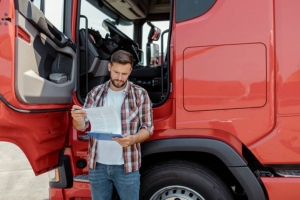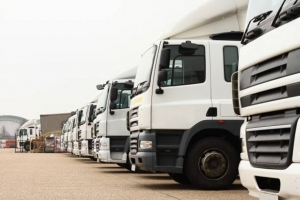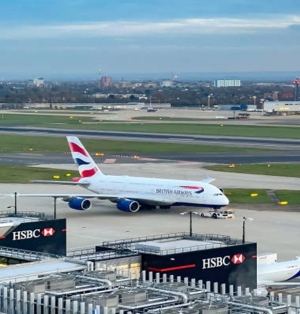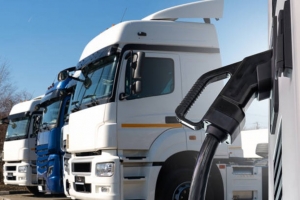Royal Mail Rolls Out Solar-Powered Postboxes Nationwide
Royal Mail has confirmed plans to introduce 3,500 redesigned postboxes fitted with solar technology, following a pilot earlier this year in Hertfordshire and Cambridgeshire. The company describes the move as the most significant update to its iconic red postboxes in 175 years, aimed at making it easier for customers to send and return parcels.
The upgraded boxes include a barcode scanner and a solar-powered drawer, allowing parcels up to shoebox size to be posted directly, alongside the usual letter slot. Customers using the Royal Mail app can also obtain proof of posting and track their items, bringing parcel services in line with modern shopping habits. The solar panels are positioned to face south to maximise efficiency, powering the new digital functions without affecting traditional letter services.
The rollout will begin in cities such as Manchester, Edinburgh, Nottingham, Sheffield and Sunderland, before expanding across the UK in the coming months. Jack Clarkson, managing director at Royal Mail, said the changes reflect the ongoing rise in online shopping and second-hand marketplaces: “With a postbox within half a mile of almost every household, we already offer the most convenient parcel network in the country.”
Alongside the new design, Royal Mail continues to expand its wider network of parcel services. Customers now have access to more than 23,500 drop-off and collection locations, including parcel lockers, Post Office branches, Collect+ stores, and Royal Mail customer service points, in addition to standard postboxes.
DP World Unveils Low Carbon Trucking Initiative at UK Ports
DP World has introduced a new Low Carbon Truck Programme (LCTP) at its London Gateway and Southampton terminals, in what it calls a first for the UK logistics sector. The scheme, developed in partnership with Certas Energy and New Era Fuels, will allow haulage firms using the ports to switch to hydrotreated vegetable oil (HVO), a renewable alternative to diesel that can cut emissions by up to 85%.
With over 4,000 truck movements through its sites each day, DP World hopes the initiative will encourage at least 500 vehicles to transition to HVO during the pilot, which runs until 2027. The programme is intended to act as a stepping stone towards the longer-term ambition of fully electric HGV fleets, which would eliminate tailpipe emissions entirely.
John Trenchard, DP World’s vice president for sustainable supply chains, said the move could help cut more than 30,000 tonnes of carbon dioxide annually if widely adopted. He described the initiative as a major step in tackling Scope 3 emissions for cargo owners and freight forwarders, adding that it complements the company’s existing sustainability programmes.
The scheme also includes a full day of carbon literacy training to equip hauliers with knowledge on low-carbon operations. Funded through DP World’s Energy Transition Contribution, the project has been welcomed by the Road Haulage Association, which said HVO provides operators with a practical interim route to reducing emissions on the path to net zero.
Safety Warning for New Drivers Sharing Motorways with HGVs
With thousands of newly qualified drivers set to join the nation’s motorways this summer, National Highways and RED Driver Training are reminding motorists of the importance of staying safe around heavy goods vehicles (HGVs). August is traditionally one of the busiest months for test passes, with nearly 70,000 drivers gaining their licences in August 2024 alone. But while excitement builds for summer trips and first motorway experiences, figures show drivers under 30 account for one in four serious or fatal collisions involving HGVs.
To reduce risks, the campaign highlights the importance of knowing HGV blind spots and practising safe driving habits. Motorists are urged to overtake steadily and avoid cutting back in too soon, to keep a safe distance rather than tailgating, and to stay visible by signalling clearly and avoiding blind spots. These simple steps, experts say, can make a vital difference in preventing accidents.
Research by National Highways and RED Driver Training found that despite a 2018 law change allowing learners on motorways with instructors, more than half of new drivers had never driven on a motorway before passing their test. Two in five also admitted to feeling anxious when near lorries, showing the need for greater preparation.
Colin Stevenson of National Highways said many young drivers will be experiencing motorways for the first time this summer and urged them to give large vehicles space and respect. RED’s CEO, Seb Goldin, added that additional training with instructors can help new drivers build the skills and confidence needed to share the road safely with HGVs.
UK HGV Registrations Fall as Zero-Emission Market Slowly Expands
New figures from the Society of Motor Manufacturers and Traders (SMMT) reveal that the UK’s heavy goods vehicle (HGV) market shrank by 11.2% in the second quarter of 2025, with just 10,185 new registrations recorded. Tractor units, which continue to account for more than 40% of the sector, slipped by 8.1% to 4,295 vehicles. However, the sharpest fall was seen in box vans, which plummeted by 33.1% to only 905 registrations. Demand also weakened for tippers and curtainsiders, down 19.6% and 24.2% respectively.
One notable exception was refuse collection vehicles, which bucked the trend with an 11.4% rise, reaching 614 units. While overall volumes declined, zero-emission trucks saw significant growth, with 183 new models registered in the first six months of 2025. This marks a 59.1% increase compared with the same period last year, although they still represent less than 1% of the total market share.
Mike Hawes, SMMT chief executive, said the latest decline was expected as the market “normalises” but warned that a recovery was urgently needed given the sector’s importance to the UK economy. He welcomed new government funding for depot infrastructure but stressed that energy grid reform was vital to support operators investing in electric fleets.
The SMMT has urged policymakers to prioritise depot grid connections in the same way as data centres and renewable energy projects. The organisation argues that a long-term strategy for HGV charging infrastructure will be essential to support operators and encourage greater adoption of zero-emission vehicles.
Heathrow Submits £49bn Third Runway Proposal to Government
Heathrow Airport has formally submitted its plans for a third runway to the government, with Transport Secretary Heidi Alexander set to review the proposal. The next stage will see a public consultation on the national policy framework for airports, which outlines how approval for such a project can be granted. Only after this process can a full planning application be lodged.
The £49 billion scheme would increase Heathrow’s capacity by 276,000 flights a year, bringing the total to 756,000 annually. Plans include diverting part of the M25 into a tunnel beneath the new runway. Alongside the proposal, the Department for Transport is preparing to launch an Airspace Design Service to redesign the UK’s flight paths, aiming to improve efficiency and reduce delays — a move seen as essential for accommodating the extra air traffic.
Other proposals, including a shorter runway plan from the Arora Group, will also be considered. Logistics UK’s Senior Policy Manager, Alexandra Herdman, stressed the importance of ensuring air freight growth is included in the winning design, noting Heathrow’s role as the UK’s largest port by value and a vital link for global trade.
Meanwhile, the government is expected to approve plans allowing Gatwick’s second “emergency” runway to be used regularly, with conditions on noise levels and public transport improvements. A final decision is anticipated in the autumn.
CPR Training to Become Part of UK Driving Theory Test
From early 2026, learner drivers in the UK will be tested on vital cardiopulmonary resuscitation (CPR) skills as part of the car and motorcycle theory exam. The Driver and Vehicle Standards Agency (DVSA) hopes the move will equip more people with the knowledge to act in life-threatening emergencies, particularly as drivers are often first to arrive when someone suffers a cardiac arrest.
The updated test will include questions on CPR techniques and how to use a defibrillator — a device that delivers an electric shock to help restart the heart. Official study materials have already been revised, covering topics such as “Who can use a public access defibrillator?” with the simple answer being “anyone”. Defibrillators are designed to be easy to operate, giving clear instructions so that even untrained bystanders can step in to help.
Evidence shows that if CPR and defibrillation are administered within the first few minutes of collapse, survival rates can reach up to 70%. Without prompt action, that figure falls to fewer than one in ten. The NHS advises delivering firm chest compressions — 5 to 6cm deep at a rate of 100 to 120 per minute — until professional help arrives.
James Cant, chief executive of Resuscitation Council UK, welcomed the change, saying it will ensure millions of new drivers gain the confidence to step in and potentially save lives during a cardiac arrest.
HGV Fleets Slow to Embrace EV Shift, Brokers Report
New research reveals that the transition to electric vehicles (EVs) among commercial fleets remains sluggish - particularly in the heavy goods vehicle (HGV) sector. A survey conducted by Direct Commercial Limited (DCL) found only 13% of brokers believe their clients are adapting well to electric or hybrid models, while nearly half say operators are struggling or not transitioning at all.
The readiness for incoming sustainability regulations also appears low, with just 9% of brokers saying clients are somewhat prepared. The main barriers in the HGV space include limited electric truck availability, range anxiety, and a lack of charging infrastructure. While some movement is being seen in light commercial vehicles (LCVs), electric LCVs still represent a small slice of total fleet volumes.
Despite registrations of zero-emission HGVs doubling earlier this year, they still account for just 1% of the market - highlighting the long road ahead. Joe Hantson, Deputy CEO of DCL, emphasised that while fleets support greener policies, they are progressing at different speeds due to real-world operational challenges.
As the government ramps up its zero-emission vehicle mandate, DCL says brokers will play a key role in helping clients navigate new requirements, manage risk, and adapt to the evolving EV landscape - particularly given their significant influence across leasing channels in the fleet industry.
DVSA Tightens Oversight on Light Goods Vehicles to Tackle Rising Risks
The Driver and Vehicle Standards Agency (DVSA) is launching a new initiative aimed at strengthening compliance among light goods vehicle (LGV) operators over the next year. With a growing number of serious incidents involving LGVs, the agency plans to focus roadside enforcement and engagement efforts on higher-risk sectors, particularly construction and vehicle transport.
Despite the fact that many LGV operators take safety seriously, a worrying proportion continue to operate without proper checks in place. DVSA data shows that over half of LGVs inspected annually lead to enforcement action, often due to dangerous defects, overloading, or poorly secured loads. In fact, LGVs fail their MOTs at a rate four times higher than HGVs, and they’re involved in significantly more serious road accidents.
The DVSA’s strategy includes collaborating with trade associations to promote best practices while also increasing targeted enforcement. With ten times more LGVs than HGVs on UK roads, a more focused approach is needed to encourage compliance and protect all road users.
Tragically, the importance of this work is underscored by incidents like the death of 11-year-old Harry Dennis, killed by an unsecured scaffolding board. The DVSA is urging operators to take responsibility, follow official guidance, and help raise safety standards across the industry.













